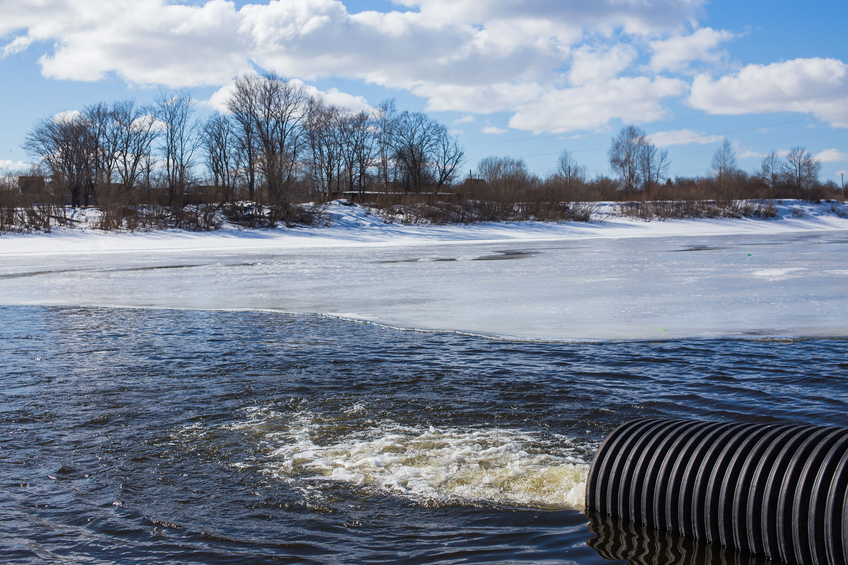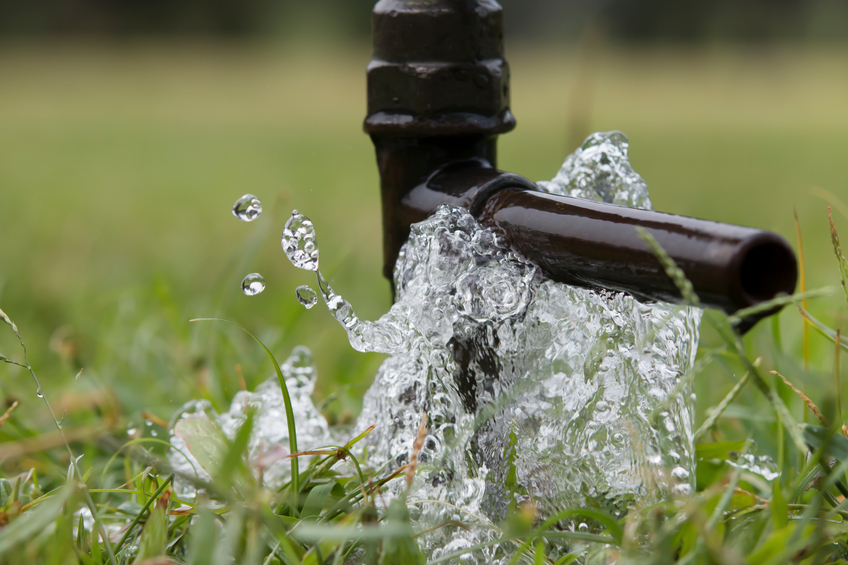New York Stormwater and Ethics 18 PDH Discount Package 3
Courses in this Package
Storm Water Pollution Prevention - Source Controls (C05-003)
Developing Your Stormwater Pollution Prevention Plan (SWPPP) (C04-057)
Transportation Stormwater Permit Compendium (C07-015)
Water Efficiency Management Guide for Landscaping and Irrigation (C01-025)
Ethics, Professionalism and Disciplinary Actions: Case Studies (LE1-003)

This online engineering PDH course provides EPA's BMP for the protection of wetlands and aquatic ecosystems, conservation of water resources, and flood control.
Municipal operations can adversely affect the water quality system due to pollutant runoff from various activities such as park and open space maintenance, fleet and building maintenance, new construction and land disturbances, and storm water system maintenance.
EPA recognizes that storm water pollution resulting from municipal activities can be prevented or reduced by implementing an effective storm water operations and maintenance program. Therefore the EPA published the Storm Water Phase II Rule on
This 5 PDH online course is applicable to municipality owners and/or operators, construction contractors/workers, site developers, engineers, managers, and all other personnel involved in the implementation of good housekeeping practices (source controls) for municipal operations.
This PE continuing education course is intended to provide you with the following specific knowledge and skills:
- Types and methods of pollution source controls
- Applicability
- Siting and design criteria
- Maintenance and cost considerations
- Effectiveness and limitations
In this professional engineering CEU course, you need to review EPA’s Best Management Practice relating to the “Source Controls” section of the “Pollution Prevention/Good Housekeeping for Municipal Operations”. This section of the BMP addresses the following:
- Pet Waste Collection
- Automobile Maintenance
- Vehicle Washing
- Illegal Dumping Control
- Landscaping and Lawn Care
- Pest Control
- Parking Lot and Street Cleaning
- Roadway and Bridge Maintenance
- Septic System Controls
- Storm Drain System Cleaning
- Alternative Discharge Options for Chlorinated Water
Once you complete your course review, you need to take a multiple-choice quiz consisting of twenty five (25) questions to earn 5 PDH credits. The quiz will be based on this EPA publication.
Upon successful completion of the quiz, print your Certificate of Completion instantly. (Note: if you are paying by check or money order, you will be able to print it after we receive your payment.) For your convenience, we will also email it to you. Please note that you can log in to your account at any time to access and print your Certificate of Completion.

This online engineering PDH offers steps for planning how to prevent and contain stormwater pollution. It offers a step by step guide on what should be included in the plan, as well as helpful tips for how the plan can be maintained, adhered to, and exceeded in order to ensure a high level of quality.
Stormwater runoff is water from rain or snowmelt that does not immediately infiltrate into the ground and flows over or through natural or man-made storage or conveyance systems. When undeveloped areas are converted to land uses with impervious surfaces such as buildings, parking lots, and roads, the natural hydrology of the land is altered and can result in increased surface runoff rates, volumes, and pollutant loads.
This course provides useful tips about maintaining a SWPPP, as well as examples of and foresight into what can go wrong with various different kinds of materials which are commonly found at industrial sites. This includes solids, liquids, and waste. It also provides useful information on how to effectively and efficiently handle stormwater discharge in the event that control measures fail, and information on monitoring pollutants in stormwater discharge.
This 4 PDH online course is applicable to industrial, civil, environmental, and sustainability engineers as well as others interested in gaining a basic understanding about developing a stormwater pollution prevention plan.
This PE continuing education course is intended to provide you with the following specific knowledge and skills:
- Understanding what causes stormwater pollution and its effects on the environment
- Learning how to prevent and contain stormwater pollution
- Learning how to develop a stormwater pollution prevention plan in order to be in compliance with a National Pollutant Discharge Elimination System permit
- Learning how to analyze the particular pollutants in your stormwater discharge
Upon successful completion of the quiz, print your Certificate of Completion instantly. (Note: if you are paying by check or money order, you will be able to print it after we receive your payment.) For your convenience, we will also email it to you. Please note that you can log in to your account at any time to access and print your Certificate of Completion.

This online engineering PDH course presents examples of different permitting approaches that the U.S. Environmental Protection Agency (EPA) found in a nationwide review of National Pollutant Discharge Elimination System (NPDES) permits that specifically address linear, department of transportation (DOT) municipal separate storm sewer systems (MS4s).
Stormwater discharge is an issue which requires both proactivity and reactivity; the MS4 permits provide a framework within which projects can adhere to practices aimed at reducing the amount of pollutants found in stormwater discharge which makes its way into the environment.
This course features useful information and excerpts from the MS4 permits of many different States. It uses these excerpts to illustrate key points regarding each section of the packet. It also features broader tips which apply to general projects which may be susceptible to pollutants in stormwater discharge.
This 7 PDH online course is applicable to civil, environmental, stormwater management and sustainability engineers as well as other technical personnel interested in learning more about MS4 permit regulations.
This PE continuing education course is intended to provide you with the following specific knowledge and skills:
- Understanding the key idea behind MS4 permit requirements
- Familiarizing with the establishment of the stormwater management program
- Learning about the permit requirements for facilities, roadways and storm sewer infrastructure
- Familiarizing with the Project Development and Active Construction requirements
- Familiarizing with the various Best Management Practices of the different DOTs
Upon successful completion of the quiz, print your Certificate of Completion instantly. (Note: if you are paying by check or money order, you will be able to print it after we receive your payment.) For your convenience, we will also email it to you. Please note that you can log in to your account at any time to access and print your Certificate of Completion.

This online engineering PDH course provides basic information about landscaping and irrigation and discusses the different approaches and technologies utilized to ensure efficient outdoor water use.
Most of the residential outdoor water in the United States is used for landscape irrigation. In fact, as much as half the residential outdoor water is wasted through evaporation, wind, or runoff. Many factors are either directly or indirectly responsible for this loss among which; improper irrigation system design and installation as well as poor maintenance. Thus, improved landscaping, effective maintenance practices and efficient irrigation equipment can significantly reduce water use, prevent its loss and decrease costs from property landscapes.
This 1 PDH online course is applicable to environmental, civil and landscape engineers who are interested in improving outdoor water efficiency by learning proper landscape design, irrigation techniques and the different equipment that help reduce water use.
This PE continuing education course is intended to provide you with the following specific knowledge and skills:
- Familiarizing with the concept of outdoor water use
- Understanding the most common problems in improper irrigation systems
- Learning about landscape maintenance for water-efficient landscaping
- Learning about irrigation maintenance for water-efficient landscaping
- Exploring irrigation system components and the different technologies used
- Knowing about water efficiency measures through various irrigation controllers
Upon successful completion of the quiz, print your Certificate of Completion instantly. (Note: if you are paying by check or money order, you will be able to print it after we receive your payment.) For your convenience, we will also email it to you. Please note that you can log in to your account at any time to access and print your Certificate of Completion.

In this online engineering PDH course, ten case studies of actual enforcement actions taken by a state licensing board are presented. The cases have been selected to be representative of situations likely to exist in many states. Board procedures and the types of enforcement actions available are shown by a variety of cases ranging from a geotechnical engineer who produced (within one hour and without visiting the site) a soils report, to an engineer who was unable to document his PDH's during a board audit. The importance of being very careful about when to put "P.E." after one's name on a document also will become apparent.
Codes of ethics for engineers typically describe standards for professional behavior. The enforcement of those ethical standards that are inscribed into law lies with the licensing boards of state governments.
This 1 PDH online course is intended primarily for all engineers seeking to deepen their understanding of what constitutes ethical and professional engineering behavior and how such behavior is enforced by the licensing board.
This PE continuing education course is intended to provide you with the following specific knowledge and skills:
-
Familiarizing with the format of enforcement decrees issued by a state licensing board
-
Knowing the ten different types of licensing violations
-
Understanding the investigative process of the board, as it attempts to determine the validity of complaints brought before it
-
Learning about the types of enforcement actions available to the board
In this professional engineering CEU course, you need to review the course document titled, "Ethics, Professionalism and Disciplinary Actions: Case Studies".
Upon successful completion of the quiz, print your Certificate of Completion instantly. (Note: if you are paying by check or money order, you will be able to print it after we receive your payment.) For your convenience, we will also email it to you. Please note that you can log in to your account at any time to access and print your Certificate of Completion.